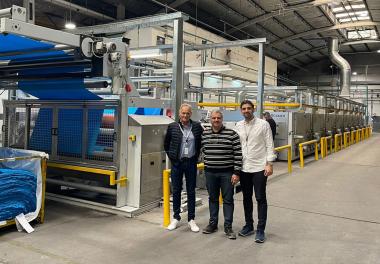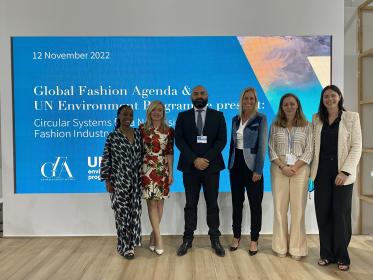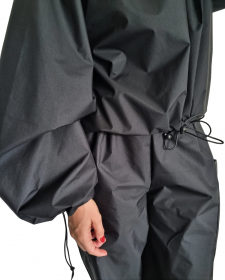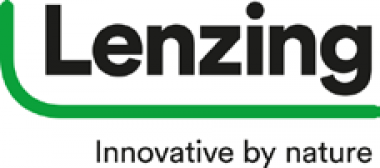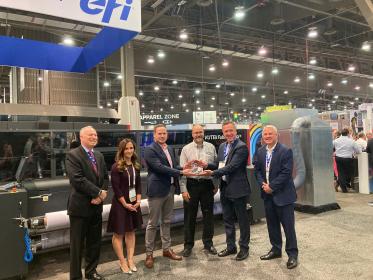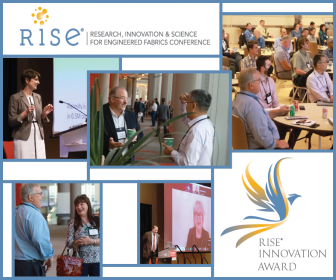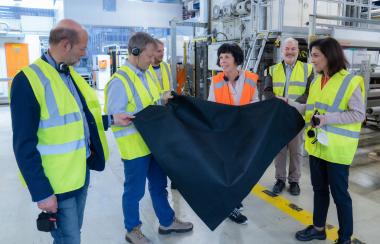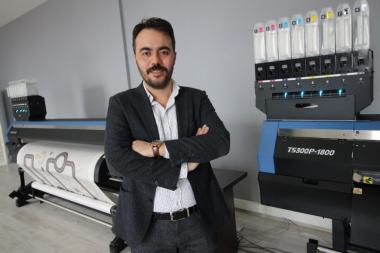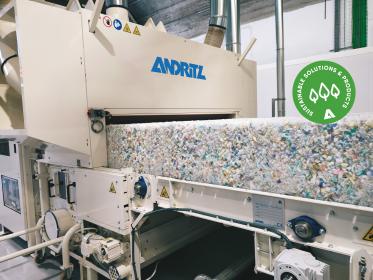Lenzing and Renewcell sign large-scale supply agreement
The Lenzing Group, a leading supplier of sustainably produced specialty fibers, and Renewcell, the Swedish textile-to-textile recycling pioneer, have signed a multi-year supply agreement to accelerate the transition of the textile industry from a linear to a circular business model. The agreement contains the sale of 80,000 to 100,000 tonnes of Renewcell’s 100 per cent recycled textile Circulose® dissolving pulp to Lenzing over a five-year period, for use in the production of cellulosic fibers for fashion and other textile applications.
“The textile industry must change. By signing the agreement with Swedish textile-to-textile recycling company Renewcell, Lenzing is able to further integrate recycling and accelerate the transition of the textile industry from linear to circular. As champions of sustainability, we know that moving towards a circular economy is vital to address the enormous textile waste challenges of the industry”, says Christian Skilich, Chief Pulp Officer of the Lenzing Group.
“Lenzing is a major player in our industry, with an inspiring track record of path-breaking technical excellence and sustainability leadership. Our new partnership fits perfectly into Renewcell’s strategy to accelerate the scale-up of circular materials by collaborating with fashion’s most important players. We are more than pleased to join forces with Lenzing with the shared goal of making fashion circular.” said Patrik Lundström, CEO of Renewcell, in a comment on the agreement.
Canopy, a not-for-profit environmental organization dedicated to protecting forests, species, and climate, welcomes the agreement between Lenzing and Renewcell.
“Accelerating the transition to low-impact, circular production is the challenge of the decade for the fashion industry. That is why this partnership between Renewcell and Lenzing is so refreshing – it will bring low-carbon Next Gen solutions to market at scale,” exclaimed Nicole Rycroft, Executive Director of Canopy. “With the climate and biodiversity clocks ticking, the race to circularity is one we need all companies to win.”
It is an essential part of Lenzing’s corporate strategy and ambitious sustainability targets to become a true champion of circularity and to offer TENCEL™ and LENZING™ ECOVERO™ branded specialty textile fibers with up to 50 percent post-consumer recycled content on a commercial scale by 2025. To reach this goal Lenzing partners with recycling pioneers like Renewcell.
Circulose® originates 100 per cent from textile waste, like old jeans and production scraps, and turns into dissolving pulp. It transforms textile waste and production scrap into new high-quality textile products.
Lenzing AG / Renewxell






